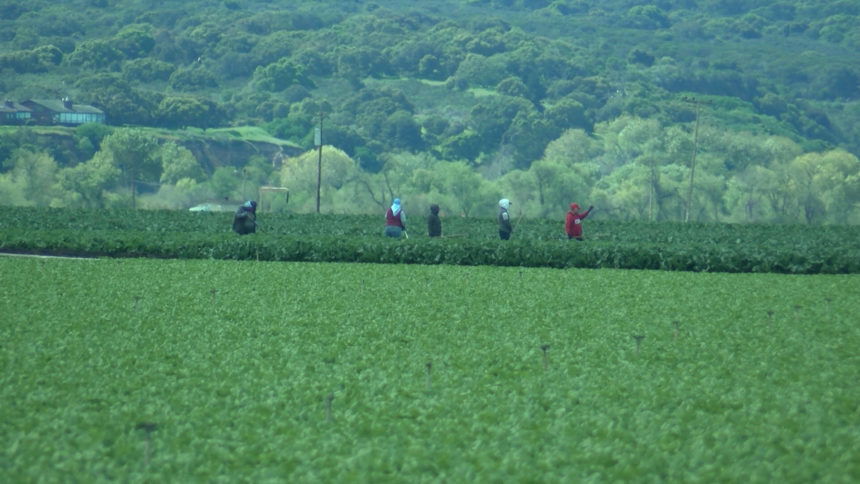Supreme Court decision erases Cesar Chavez victory

CENTRAL COAST, Calif. (KION) The Supreme Court ruled against a California regulation that granted access to agricultural fields to union organizers. On Wednesday, the Court voted 6-3, justices said the "right of access" rule violates the Constitution's protection of property rights.
California adopted the regulation in 1975 which allowed union organizers to enter the farm property three times a day for 120 days a year and visit farmworkers for an hour during their break. Cesar Chavez campaigned for this regulation in Agriculture Labor Relations Act.
Maria Delgado, a Greenfield resident, and farmworker said it's during those hours and visits from organizers that she and others were able to learn about the resources available and most importantly about their rights.
"There is a great need in the fields and many times the companies do not do enough for us workers,” said Delgado. “These unions are the ones that fight for our rights and keep us informed of what is happening. They made the wrong decision."
The United Farm Workers said they’re disappointed with the decision made by the court. According to Armando Elenes, the ruling will create further injustices for these essential workers in a system that is already broken and racist.
“That's what the growers wanted, they wanted them to have less access to information, less access, to try to improve their conditions,” said Elenes. “They rather have a worker bow their head and go faster than a worker raise their head and ask about conditions. That's what it's about.
Cesar Chavez's son, Fernando Chavez said, that this is not the first time that the courts have tried to violate farmworker's rights to unionize. It's a setback but not a defeat, he said.
“Farmworkers continue to be the one segment of society that is awfully voiceless, powerless,” said Chavez. “If it wasn't for them you, nor I, nor many people would have food on our table on a daily basis.”
Norm Groot with the Monterey County Farm Bureau said, that the agricultural businesses can now control access and decide for themselves whether to allow union organizers on their property. According to Groot, this access was disruptive to both the farm and employees.
The case was filed by the Pacific Legal Foundation who represented two agricultural businesses, Cedar Point Nursery and Fresno-based Fowler Packing Co. They argue that this regulation is outdated now that organizers can communicate and meet with farmworkers through the use of technology.
Chief Justice John G. Roberts Jr. wrote for the court in the Cedar Point Nursery vs. Hassid, "the access regulation grants labor organizations a right to invade the growers’ property. It, therefore, constitutes a per se physical taking.”
We will hear more from KION's Jonathan Sarabia tonight at 5 p.m. and 6 p.m. on KION News Channel 5 46
